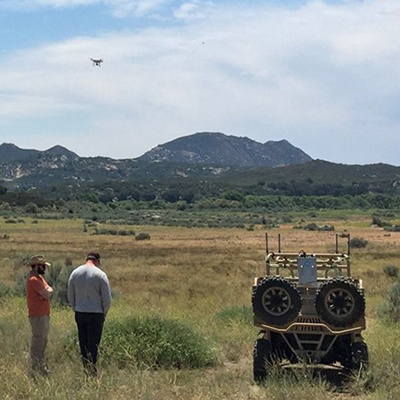
A small San Diego-based startup launched by a former student in CSE to reduce the threat of accidents due to civilian drones flying dangerously is getting some traction from an unusual place: Hollywood. The company is SkySafe, and the Hollywood star is Ashton Kutcher.
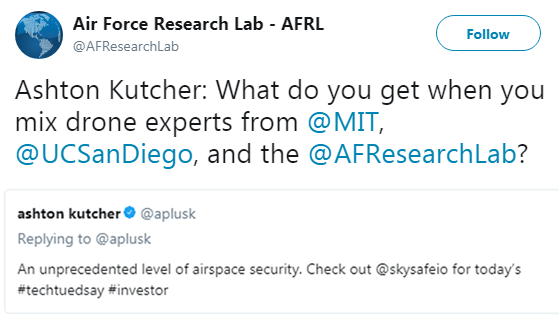
and Air Force Research Lab
In an exchange Nov. 15, the Air Force Research Lab used its Twitter account to pose a question. "Ashton Kutcher: What do you get when you mix drone experts from @MIT, @UCSanDiego and the @AFResearchLab?" Kutcher's reply Tweet: "An unprecedented level of airspace security. Check out @skysafeio for today's #techtuesday #investor".
So what is Kutcher's connection to SkySafe, and what does the company have in common with MIT, UC San Diego and the Air Force Research Lab?
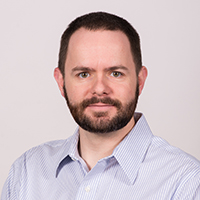
Grant Jordan
The short answer to the latter question: SkySafe founder and CEO, Grant Jordan, a former Computer Science and Engineering M.S. student at UC San Diego. Jordan did his undergraduate engineering degree at MIT, then spent four years as a development engineer in the Air Force Research Lab testing anti-drone technology. From there he went to graduate school at UC San Diego, where he worked on cybersecurity issues in the lab of CSE professor Stefan Savage (recent winner of a 2017 MacArthur Foundation 'genius' grant).
Together with fellow CSE grad student, Paul Wicks (M.S. '14), Jordan created the cybersecurity-related startup SkySafe in 2015 and received $3 million in seed funding in 2016.
With the rapid growth in the use of civilian drones, SkySafe is developing technology to allow institutional users to disable drones flying in areas that are off-limits, or in areas that may be accessible but threatened by drones flying dangerously.
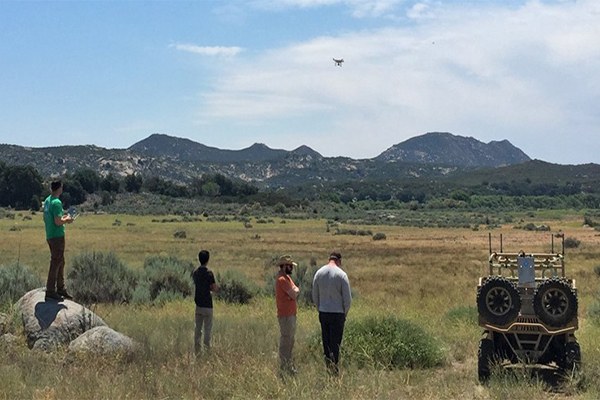
using RF technology developed by San Diego-based
SkySafe, co-founded by former CSE students.
The technology leverages radio waves to override the instructions from a drone owner's remote-control unit, thus taking control of the airborne device. SkySafe uses radio frequency (RF) technology to send unwanted drones crashing to the ground. Alternatively, the technology can force a drone to return to its takeoff point automatically. Explained Jordan: "Our goal is to help drones be a positive change in society by improving safety, management and coordination."
So where does Ashton Kutcher fit into SkySafe's story? The actor co-founded the venture capital firm Sound Ventures in 2015, and the VC firm has invested in dozens of startups, most of them with founders under 30 years old, including SkySafe. In July, Kutcher's VC firm was one of eight companies that together invested $11.5 million of Series A funding in SkySafe. Other investors included the most powerful VC firm in Silicon Valley, Andreesen Horowitz, which had led the initial $3 million funding round for SkySafe in 2016.
In July, SkySafe also announced a $1.5 million contract with the Department of Defense. The contract is with the Pentagon's Silicon Valley office, known as the Defense Innovation Unit Experimental (DIUx), and Naval Special Warfare Command.
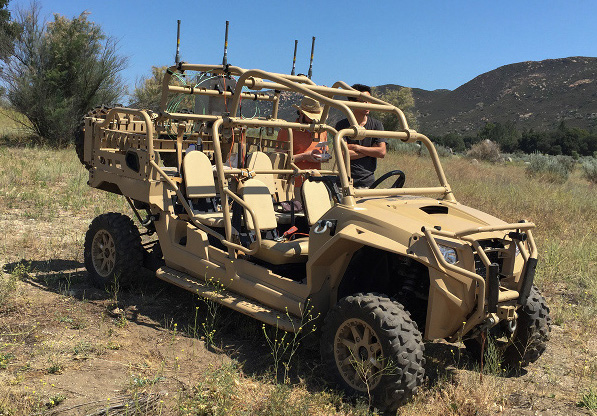
counter-drone system on light tactical Polaris MRZR
vehicle to prevent drone attacks on Navy Seals in the field.
The goal: to protect Navy Seals from small weaponized drones, primarily by reverse engineering communications and telemetry links which vary for each type or model of drone. DIUx aims to accelerate commercial innovation for national defense.
“It’s become a big problem on the military side,” SkySafe's Jordan told the news service FedScoop. “ISIS and other terrorist groups have started really weaponizing drones and bringing them into battles in a way that really hasn’t happened before.”
To counter unmanned aerial systems, SkySafe will install mobile RF counter-UAS systems on light tactical vehicles such as the Polaris MRZR (the military version of the off-road RZR vehicle) to protect Navy Seals from the new drone threat. SkySafe is currently working with Naval Special Warfare Command to do testing, and the startup expects to have a prototype ready for the field in 2018.

